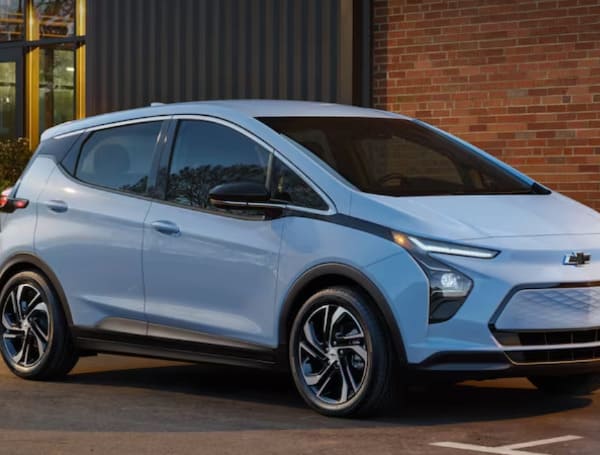Virginia’s electric vehicle (EV) mandate could be a key issue in the state’s upcoming elections in November, polling by WPA Intelligence suggests.
The polling demonstrates that residents of some of the state’s most competitive Senate districts tend to oppose the adoption of several California EV policies, including a 2021 law enacted by the former governor that bans the sale of gas-powered vehicles starting in 2035.
Republican Virginia Gov. Glenn Youngkin still wants to repeal the law tying his state’s vehicle policies to those of California after an earlier attempt to do so came up short, but Republicans will almost certainly need to retain an advantage in the state House and gain a state Senate majority in order to effectuate a repeal.
In the news: Supreme Court Justices Refuse To Block Florida Execution Of Michael Duane Zack
About 64% of the polled Virginians oppose the 2021 “Clean Cars” law signed by former Democratic Virginia Gov. Ralph Northam that enjoins Virginia’s vehicle regulations to California law, with 54% of polled citizens saying that they strongly oppose the law. Further, 52% of respondents said that they would be less likely to vote for a candidate that supports an eventual ban on the sale of gas-powered cars, with 43% saying they are much less likely to vote for such a candidate.
The survey, conducted at the behest of the American Fuel and Petrochemical Manufacturers, focused on Virginians living in seven specific state Senate districts that are anticipated to be among the most competitive districts in November’s elections. Of those seven districts, four are currently represented by Republicans and three by Democrats. The poll found that opposition to the policy did not vary much from district to district.
Of the seven Senate districts included in the survey, five of them (Districts 16, 17, 24, 27 and 31) are identified as “key races” which are likely to determine which party holds the legislature’s upper chamber after votes have been cast and counted, according to the Virginia Public Access Project.
The survey contacted the 1,213 respondents via phone and text message, and the respondent pool consisted of a weighted sample that accounted for differences in geography, age, party, ethnicity and gender among the respondents.
Democrats currently hold a 22-18 majority in the state’s upper chamber, but all 40 seats are up for grabs in November. A strong Republican majority in the legislature could enable Youngkin to initiate a repeal of Northam’s “Clean Cars” law, as the first attempt fell short in January when state Democrats killed a repeal bill in a Senate committee.
In the news: Trump Rips New York Judge In Fraud Case, Calls Ruling ‘Election Interference’
“[I]t defies common sense that Democrats in Virginia have continued to outsource decision-making on energy policy,” Macaulay Porter, a spokesperson for Youngkin, told the Daily Caller News Foundation about the “Clean Cars” law in September. “California’s requirements for their citizens should not be a one-size-fits-all all solution for Virginia.”
Most new EVs are luxury models with an average sale price of around $61,000, according to CNBC. That figure is nearly $12,000 more than the overall automobile industry average. In 2020, the year before Northam signed the bill, approximately 2% of new car sales in Virginia were EVs, according to Virginia Places.
Android Users, Click To Download The Free Press App And Never Miss A Story. Follow Us On Facebook and Twitter. Signup for our free newsletter.
We can’t do this without your help; visit our GiveSendGo page and donate any dollar amount; every penny helps

